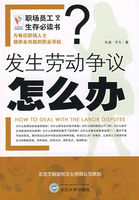HOSTILE FEELING BETWEEN CLASSES CONDITIONS PRODUCING CLASS ANIMOSITY -- THE SPIRIT OF SERVICEALLAYS BITTERNESS -- POSSIBLE DECREASE OF THE PRESTIGE OF WEALTH -- PROBABILITYOF A MORE COMMUNAL SPIRIT IN THE USE OF WEALTH -- INFLUENCE OF SETTLEDRULES FOR SOCIAL OPPOSITION -- IMPORTANCE OF FACE-TO-FACE DISCUSSIONCLASS animosity by no means increases in proportion to the separation of classes. On the contrary, where there is a definite and recognized class system which no one thinks of breaking down, a main cause of arrogance and jealousy is absent. Every one takes his position for granted and is not concerned to assert or improve it. In Spain, it is said, "you may give the inch to any peasant; he is sure to be a gentleman, and he never thinks of taking the elf." So in an English tale, written about 1875, I find the following: "The peasantry and little people in country places like to feel the gentry far above them. They do not care to be caught up into the empyrean of an equal humanity, but enjoy the poetry of their self-abasement in the belief that their superiors are indeed their betters." So at the South there was a kind of fellowship between the races under slavery which present conditions make more difficult. A settled inequality is the next best thing, for intercourse, to equality.
But where the ideal of equality has entered, even slight differences may be resented, and class feeling is most bitter, probably, where this ideal is strong but has no regu-(302)-lar and hopeful methods of asserting itself. In that case aspiration turns sour and generates hateful passions. Caste countries are safe from this by lacking the ideal of equality, democracies by partly realizing it. But in Germany, for instance, where there is a fierce democratic propaganda on the one hand, and a stone wall of military and aristocratic institutions on the other, one may feel a class bitterness that we hardly know in America.
And in England also, at the present time, when classes are still recognized but very ill-defined, there seems to be much of an uneasy preoccupation about rank, and of the elbowing, snubbing and suspicion that go with it.
People appear to be more concerned with trying to get into a set above them, or repressing others who are pushing up from below, than with us.
In America social position exists, but, having no such definite symbols as in England, is for the most part too intangible to give rise to snobbery, which is based on titles and other externalities which men may covet or gloat over in a way hardly possible when the line is merely one of opinion, congeniality and character.
Th feeling between classes will pot be very bitter so long as the ideal of service is present in all and mutually recognized. And it is the tendency of the democratic spirit梫ery imperfectly worked out as yet梩o raise this ideal above all others and make it a common standard of conduct. Thus Montesquieu, describing an ideal democracy, says that ambition is limited " to the sole desire, to the sole happiness, of doing greater services to our country than the rest of our fellow citizens. They cannot all render her equal services, but they all ought to serve her (303) with equal alacrity." He thinks also that the love of frugality, by which he means compunction in material self-indulgence, "limits the desire of having to the study of procuring necessities to our family and superfluities to our country." [1] If it were indeed so ill our own world, there would be no danger of a class conflict.
Possibly all states of opinion by which any service is despised are survivals from a caste society, and reminiscent of the domination of one order over another梛ust as slavery has left a feeling in the South that hand labor is degrading. So soon as all kinds of workers share freely in the social and political order, all work must be respected. The social prestige of idleness, of "conspicuous leisure," that still exists in the Old World, is evidently a survival of this sort, and it can hardly happen in the democratic future that "people will let their nails grow that all may see they do not work." "I do not call one greater and one smaller,"says Whitman, "that which fills its period and place is equal to any." [2] I think, however, that there will always be especial esteem for some sorts of achievement, but the grounds for this will, more and more, be distinction in the common service.
The excessive prestige of wealth, along with much of the ill feeling which it involves, is also, in my opinion, rather a legacy from caste society than a trait congenial to democracy. I have tried to show that the ascendancy of riches is really greater in the older and less democratic societies;and it survives in democracy as much as it (304) does partly because of the tradition that associates wealth with an upper caste, and partly because other ideals are as yet crude and unorganized.
A real democracy of sentiment and action, a renewed Christianity and a renewed art might make life beautiful and hopeful for those who have little money without diminishing the wholesome operation of the desire for gain.
At present the common man is impoverished not merely by an absolute want of money but by a current way of thinking which makes pecuniary success the standard of merit, and so makes him feel that failure to get money is failure of life. As we no longer feel much admiration for mere physical prowess, apart from the use that is made of it, so it seems natural that the same should come true of mere pecuniary strength. The mind of a child, or of any naive person, bases consideration chiefly on function, on what a man can do in the common life, and it is in the line of democratic development that we should return toward this simple and human view.















